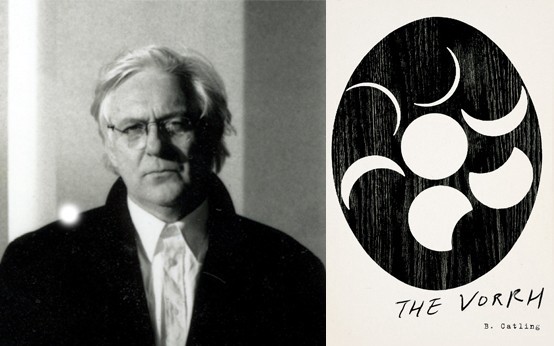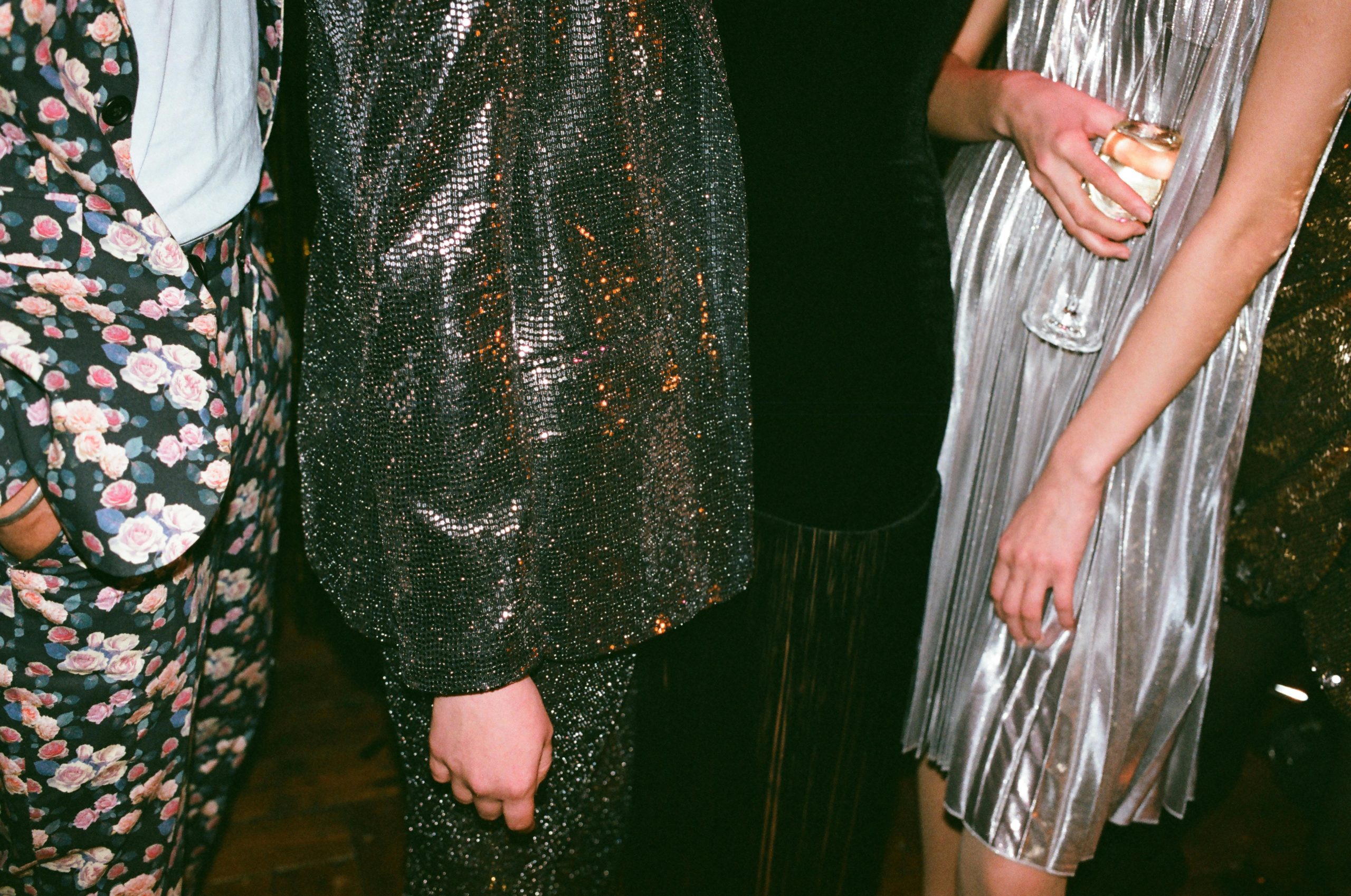Interviews
How an Artist Accidentally Created a New Kind of Fantasy Novel: an interview with B Catling, author…
H

What happens when a high fantasy novel is created by a visual artist? Does that novel continue to be a fantasy novel or is it something else entirely? With the recent release of The Vorrh (Vintage/Random House) author B. Catling has birthed a fantasy epic that reads almost more like the prose version of installation art. That is, if installation art contained “living” weapons, occasional magic, and at least one Cyclops. I spoke to the author/artist over the phone last week as he readied for his American book tour. What was revealed was how someone who does not see himself as a novelist or a fantasy writer still succeeds at both.
Britt: Okay. So in your art, the concept of the Cylops appears quite a bit. And of course, in the novel there’s a Cyclops. Can you speak to your affinity for that idea or why you like that monster specifically?
Catling: It came really from seeing one. In a glass jar. In the Hunterian Museum at the Royal College of Surgeons. It hadn’t survived birth or it hadn’t been allowed to survive birth. It had one eye and two pupils. It was devastating. Sad, tragic and disgusting;all those things you’re not supposed to feel at once but do. Which made me think of mythology, all the things we know about the Cyclops from mythology. But being confronted as a piece of flesh that grew into that [mythology] is a very different. Then, years later I was doing a performance with my head down on a piece of glass when someone took a photograph. And the photograph caught me looking bisected like that, and I thought: my God, I can make this. I can actually make this live. I can make the one-eyed thing. Which lead to me making those in my art and then to write about them. I had to write the way a Cyclops might think.
Britt: How is the Cyclops in the novel different than the ones in the glass jars, in your art or in mythology?
Catling: Well, like all monsters, it’s sympathetic. And this one is small, it’s growing. It starts off as kind of an adolescent child and then becomes a peevish human being. It plays with notions of what we think of as normal and what we think of as abnormal. I’ve recently been working with disabled people and they have this wonderful expression: “The world is only full of two kinds of people; those who are disabled and those who are not disabled yet.” Which is a little bit terrifying in its reality.
Britt: You said something about monsters being sympathetic Can you speak to that a bit more?
Catling: I guess because all of us try towards some notion of perfection or some idea of being normal or heroic or trying to fit in, that anything that is never going to be like that is a sort of relief to us. A monster is a relief for us. And then it gets blamed for things. Once we decide it’s not ever going to be something perfect, we can blame all sorts of things on it! (laughs)
Britt: Right. So, you think a monster in literature, film, or in art is inherently sympathetic because how we’ve defined a monster?
Catling: I think it’s true of villains as well. Because they’ve stepped that far outside human behavior and provides an anti-magnetism which gives “us” more permission to be “normal.”
Britt: I’m interested in how you may or may not have appropriated existing fantasy literature. Is The Vorrh intended to be a dialogue with existing fantasy literature?
Catling: No. Not really. I’ve not read a lot of fantasy literature. Though, my biggest inspiration was Edgar Allen Poe. I think there’s always a little bit attached to fairy kingdoms and things with “fantasy.” I thought I was writing a surrealist novel. But it wasn’t my intention. Of course when it came out and people were calling it fantasy, I thought, well, I guess it sort of is. But it wasn’t my intent. (laughs)
Britt: Regardless if we’re calling it “Fantasy” or “Surrealist” what is the advantage of using this kind writing to convey emotion, as opposed to, say, “realistic” or “naturalistic fiction?
Catling: Well, I suppose I don’t think I could write the other kind! (laughs) To be blunt. I’m not aware that when I’m doing it that I’m going into those realms. I mean I’ve entered the territory of robots and all those things. But I very quickly get engaged to who they are what that they’re doing, rather than where they’re from. I’m very much engaged with the imagination. And I think that’s probably because I was never much good at the real world. You don’t need to convert to use the imagination. It’s there to be embraced.
Britt: Can you talk to me about the “living bow” in the novel? It was a brutal construction scene.
Catling: Well, it was the first scene I had in mind and I couldn’t write anything else for years and years. But I have an interest in archery. The book Zen and the Art of Archery was an influence on me and this book. Anyway, bows are made of pretty strange materials. They’re often made of parts of animals and parts of trees. And then I thought, what if there were a speaking bow?
I suppose I wanted us [the readers] to believe we were witnessing a murder scene, of the worst kind. The destruction of a body to be thrown away or hidden. And then, to realize it was completely different.
Britt: That it wasn’t an act of violence at all.
Catling: Correct. I mean, do teach some anatomy. I’ve seen cadavers and I know that the body is a strange thing. But, it’s not seen as material.
Britt: The living bow seems to take on a sort of immortality. Can you speak to the idea of immorality? Does that have to do something with not dealing well with the real world?
Catling: Well, in the second book, the ghost and the hunter will return the bow to the place where it was made. And we’ll discover some things we assumed about the person from which the bow was made and those things may be different than we assumed. Someone we didn’t know existed will have a relationship with the bow and the person from which the bow was made.
Britt: This is a trilogy, correct?
Catling: Yes.
Britt: And the next book will start with these new revelations about the bow, about the secrets that the person from which the bow was made might have had?
Catling: No. (laughs) You’ll have to get into a bit to find that out. No the next scene begins with a scene of young man being struck by a car, which is based on something that happened to my British son.
Britt: You incorporated him into your book? Your own son? Your own biography is weaved into this fantasy world of The Vorrh?
Catling: Well, I’ve been asked this question a lot: how do I distinguish reality and fantasy. And I could tell you about my son or other people I know and you’d never think anyone could have the nerve to invent such a person! (Laughs!)
Britt: So there are two more of these books. And those are done?
Catling: Yes.
Britt: And I read somewhere that you’d been working on this first book for quiet awhile.
Catling: I was working on the first three pages for YEARS. I thought, I can’t write prose. I can’t write prose. And then, I did. And it’s not stopped.
Britt: What was that breakthrough like? What changed?
Catling: Someone once asked me, what was that cathartic moment? And the answer is: a laptop. I’m dyslexic…the words flow, but not always in a way that people would recognize. The laptop was the first mechanism that I could take with me and that helped. I am 67 years old. And I started writing at 61.
Britt: So after the Vorrh trilogy concludes, what next? Are there more books?
Catling: Yes! Hold onto your hat. I wrote a quartet of wild west books. It’s called the “Doc Quartet.” It has Doc Holiday as a central character, though he doesn’t always appear. These won’t be classical western themes. And they’re quite savage.
Britt: When can we look for those?
Catling: Well, I’ll have to take a look at them first! (laughs) I’m very aware I’m running out of time in my life to put these books out! (laughs)









